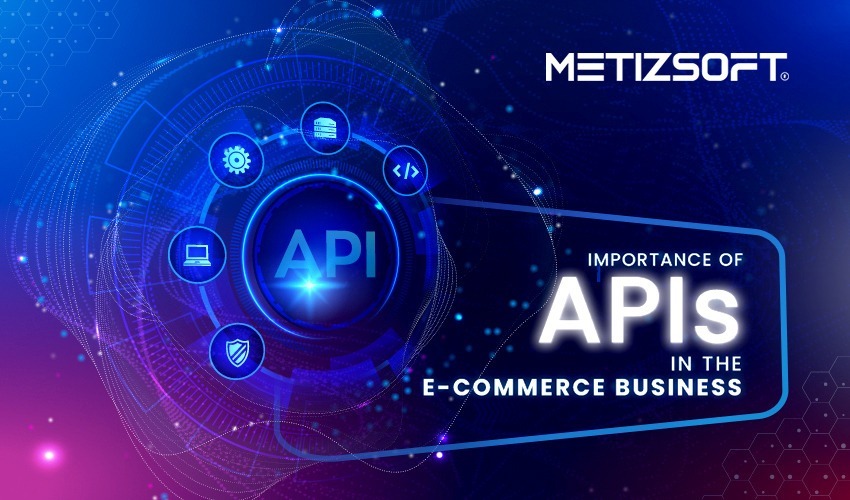
The past two decades belong to the era of technology and the internet. We have experienced a magnificent digital transformation with each advancement in technology in the last few years. The way people have adopted these rapid changes in their daily lives is impeccable in so many ways.
Unlike many, eCommerce industries have witnessed a massive rise in their economy in the last couple of years. During the pandemic, along with healthcare, eCommerce was the only industry that led to a vast shift of demand and supply amongst users globally.
Well, it has not happened overnight. Each advancement in technologies, including software-as-a-service (SaaS), Internet of Things (IoT), cloud, augmented reality (AR), virtual reality (VR), smart-mobile, big data, social media, and other technologies, have changed customers’ approach towards the eCommerce industry.
But, do you know the commonalities they share while connecting the eCommerce application with other applications for better performance? It’s the application programming interface (API).
Table of Contents
So, What are APIs, and How Does API Work?
An application programming interface or API is a machine-enabled interface that allows two applications to interact and share information. A well-defined API makes it easy for data sharing and connectivity to applications, regardless of the shape of the internal data structure and platforms.
Simply put, API makes it a seamless process for applications to perform their specific functionality.
An eCommerce API helps automate, coordinate, and streamline their business process, including order fulfillment, payment gateway, labeling, shipping, tracking order, courier management, delivery confirmation, review, and rating notification.
If you are an eCommerce business owner, you know the importance of integrating a suitable eCommerce API into your business model.
How does API Work?
Proper data ordering simplifies the term how do API work? The application programming interface or API facilitates the data ordering process for smooth and seamless enterprise eCommerce implementation.
API connects your eCommerce platforms with relevant back-end systems, including:
- Point of sale (POS)
- Warehouse Management System (WMS)
- Order Management System (OMS)
- Content Management System (CMS)
- Customer Relationship Management (CRM)
The seamless operational activities of this back-end system with your existing eCommerce application make your business agile and adaptive and provide a consistent customer experience.
The Benefits of API Integration For a Consistent Customer Experience
API-integrated eCommerce platforms allow customers to do omnichannel shopping. Regardless of your location, your consumer can place their order without hassle. One of the prime aspects of enabling a well-developed eCommerce API.
But, it is a hectic task, right; allowing all your customers to get benefit from your omnichannel shopping service. Data interpretation or collection might catch a few hindrances as your eCommerce API simultaneously connects with many devices.
However, once you start unifying your data from all your omnichannel systems/machines to one location for analysis, it might work properly with API connectivity.
Only then will you be able to count the benefits of API integration in your existing eCommerce application.
Developers are well aware of this fact, and they already have the modern API to tackle this situation.
Modern eCommerce platforms have many reusable and latest technology-driven APIs that unblock the stuck data from any system, process those data, and provide a consistent customer experience while doing shopping.
Some Key Benefits of Integrating The Right API are as Follows
API Extensible
API work as an intermediary between your application and the one you integrate for sending and receiving requests. Also, it allows you to add and subtract from your system through a simple integration process. This process leads to an extension of your application/website’s functionality, enabling it to work faster.
Enhanced Security
E-commerce application/website security is vital considering consumers, vendor data, and payment gateway functionality. With the correct API integration, you can put an extra layer of protection on these aspects.
Scalability
API allows you to add existing eCommerce systems to your eCommerce application without changing the system, program, or hardware. With this, you can grow immensely, as you have the advantage of coordinating with others.
Reusability
API can be reused, as they are built using a service-oriented approach, saving both time and money for the service holder.
APIs are Classified Into Three Types
You can build the APIs below to lead you to performance and functionality improvements.
System API
With the system API, you will be able to hide the complexity of your eCommerce applications’ core functionality, such as enterprise resource planning (ERP), customer relationship management (CRM), FTP servers, and legacy systems.
Process API
Process API help create independent data source points that break down data soils within a single system or across systems. The process API doesn’t rely on another system where the data originates or is delivered.
Experience API
Experience API offers data reconfiguration to use the same data in different channels. In this way, developers won’t have to separate data for each channel, and users can benefit from the same data from multiple channels.
The above-classified API area is a great source to execute an Omni channel consistent customer experience on shopping for a wide range of users globally.
Also, it gives you the advantage to manage to change your data interpretation across different channels fulfilling your customer needs more precisely.
12 Ways Your Business Can leverage an eCommerce API
From product information to validation to marketing, there are hundreds of ways an eCommerce application/website developer leverages API. API streamlines the shopping process and ensures reliability and complete authenticity from both user and service provider ends.
Below are listed examples of thirteen types of API that can boost your customer experience while improving your eCommerce site’s performance and functionality.
Product Information API
With product information API, you can easily extract all the product details from the enabled data, including product name, description, quantity available, product ID, titles, images, price, etc.
Authentication API (Login/registration)
You all are well aware of this process. Here, you enter your details (name, address, Valid Email Id, cell phone number, etc.). This process helps the service provider validate your identity.
Validation API
Validation API automates the validation process, whether a new user or existing user makes a way through the application/website. Based on the result, they will categorize the customer, avoiding wrong deliverables.
Catalog API
With catalog API, you can easily edit, add, and manage your product catalog. You can update product details in no time as it supports integration with the vital system of your business module, including inventory management, reporting, and analysis.
Orders API
From import to export, order API helps you get a clear view of the details of all orders going on your channel. Apart from this, users can sort and filter their canceled orders, return orders, bulk orders, and many more.
Payment API
Payment API helps you categorize your payment gateways in the form of credit/debit cards, UPI payments, and cash o delivery (COD options) based on your requirement.
Shipment API
The shipment API allows you to connect with the logistic service providers to ship your products to the relevant customer. It involves the process of tracking, packaging, invoicing, and label of the product.
Courier Service API
You can integrate courier API to check the availability of courier service in a specific location to make smooth and reliable deliverables for your shipments.
Inventory API
Inventory API allows you to update your specific product inventory details.
Social Media API
Here you can customize social media mediums like Facebook, Twitter, and Instagram API to your eCommerce application for review, customer engagement, and referrals.
Marketing API
The marketing API allows you to automate your email campaigns based on their shopping experience. Both product and location-wise!
Customer API
Developers can extend the customer record with their attributes; to add additional customer data to the customer model.
How to Develop an Integration With eCommerce API?
Well, the above elaboration of eCommerce API, types of API, and eCommerce models might have made you think that it is a complex procedure to pull.
Each of the above types of API development and integration requires a significant amount of money, time, and resources.
Also, post-deployment, you need to keep in mind the time-to-time update and maintenance for a better and more consistent customer experience.
We would consider you to take professional assistance for your eCommerce API integration to avoid unnecessary hindrances.
You can approach Metizsoft Solutions, a pioneer in developing scalable eCommerce API that has significantly impacted many eCommerce businesses. With the most robust team of API developers, they will ensure creating your eCommerce API is a seamless process.
Do not forget the hit the contact button in time of need!
Wrapping up
In this fast-forwarding era of digitalization, the eCommerce business has come a long way with each proper API integration. From catering product details to order fulfillment and shipping methods, API can help you streamline your business, giving you an edge over your competitors globally.
Considering the BigCommerce Development Company API integration process might provide you with clarity about the in-detail process of the eCommerce API integration process in any existing eCommerce models.
AboutManthan Bhavsar
Related Posts
What is a Multi-Vendor eCommerce Platform & Why this is Important? Let’s Get The Insights
A multi-vendor eCommerce platform is an online marketplace wherein many sellers can get registered, create their profiles, and...
Finally, Received 50+ Honest & Transparent Reviews On Our Official Shopify Experts Profile
Ok. So we have a habit of celebrating small accomplishments here at Metizsoft Solutions of getting 50+ Honest &...




